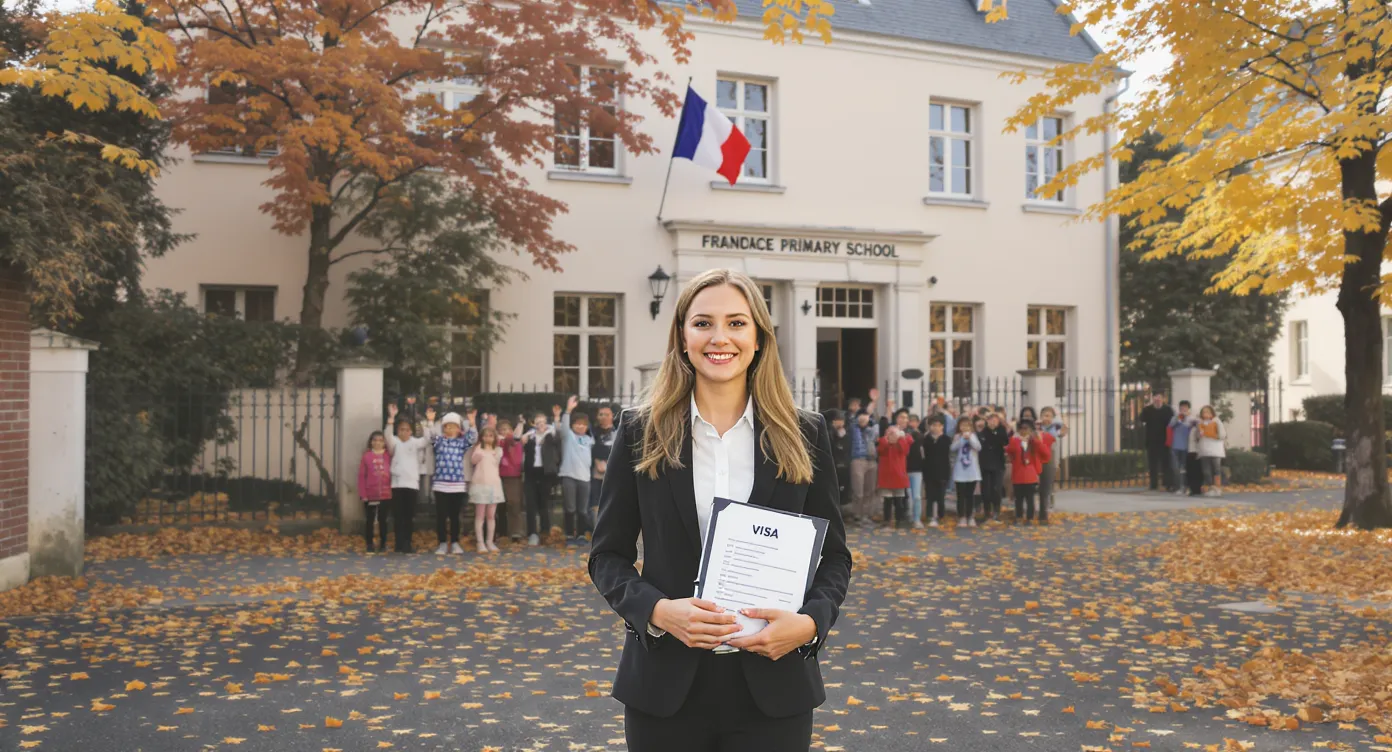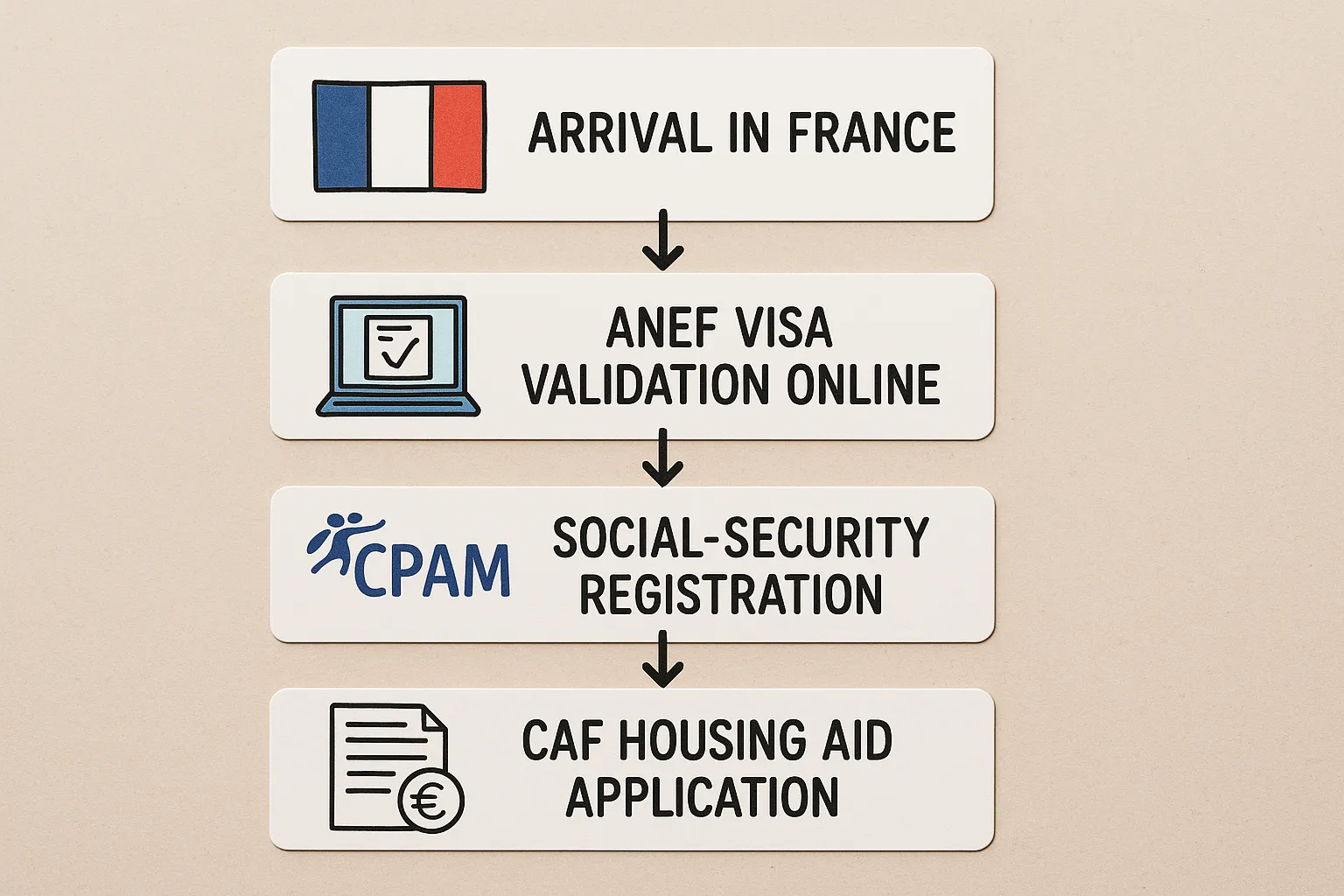Visas for Language Assistants (Assistants de Langue): 2025 Program Guide

Stepping in front of a French classroom as a language assistant (assistant de langue) is one of the fastest, most affordable ways to live and work legally in France. Each year the French Ministry of Education, France Éducation international (FEI) and a network of partner agencies recruit several thousand native speakers of 15+ languages to support primary and secondary schools. For 2025 the programme has introduced digital filing through the ANEF portal, a streamlined visa code and modest changes to eligibility ages. Below you will find a complete, field-tested guide to securing your visa, arriving smoothly and turning the experience into a longer-term residency path.

1. Programme Snapshot for 2025
- Total positions: 4 650 posts announced (source: FEI press kit, June 2025)
- Contract length: 7 months in metropolitan France (Oct-Apr) or 9 months overseas (New Caledonia, Réunion, etc.)
- Workload: 12 class hours per week (primary) or 15 hours (secondary)
- Net stipend: €1 010 ± per month in mainland France (indexed annually) plus partial reimbursement of travel within académie
- Visa type: Long-stay temporary “travailleur temporaire – Assistant de langue” (VLS-TT), now coded LS-T/AL 2025 inside France-Visas
- Social coverage: Automatic enrollment in French social security; complementary insurance optional
Key 2025 updates
- Digital visa validation – all assistants must create an ANEF account and pay the €99 tax stamp online within 3 months of arrival.
- Age ceiling lifted for certain languages – for English, German and Spanish assistants the previous 35-year limit is now 40.
- Remote biometrics pilot – applicants in Canada, Australia and South Africa may be invited to submit fingerprints via the new mobile kit instead of travelling to a consulate (see ImmiFrance’s remote biometrics article for details).
2. Who Is Eligible?
While each partner agency publishes its own criteria, the French Ministry imposes a core set of rules. Verify both layers before applying.
| Criterion | Standard Requirement (metropolitan posts) | 2025 Relaxations / Notes |
|---|---|---|
| Nationality | Citizen or permanent resident of a programme country (e.g., USA, UK, India, Argentina) | New 2025 entrants: Indonesia and Kenya |
| Age | 20 – 35 (18 – 30 for some countries) | Up to 40 for EN/DE/ES |
| Education | At least two years of university completed | Bachelor’s preferred but not mandatory |
| Language level | C1 in target language (French) and native competence in assisting language | DELF B2 accepted where no university transcripts in French |
| Police record | Clean background check less than 6 months old | Fingerprint card accepted if no national certificate |
| Prior participation | Max two consecutive years | Gap of 3 years now waived |
⚠️ If you are undocumented in France today and hope to regularise by entering the assistant programme you must leave the country first and apply from abroad; the visa cannot be issued in France.
3. Application Timeline
- October 2024 – February 2025: Submit your programme application through your national agency (e.g., TAPIF for US citizens, British Council for UK). Prepare a French résumé, lettre de motivation and university transcript.
- March – April 2025: Conditional acceptance emails go out. Login to the FEI portal to confirm placement preferences.
- May – June 2025: Receive your arrêté de nomination (official posting letter). Collect original degree certificates and police clearance.
- June – August 2025: Complete France-Visas online form. Upload JPEG/PDF copies, pay the €99 fee, schedule your consulate appointment.
- July – September 2025: Attend biometrics appointment. Bring originals plus one set of copies. Most visas are issued within 2 weeks.
- Late September 2025: Travel to France no more than 15 days before the contract start date. Keep boarding passes – they are needed for OFII validation.
- Within 3 months of arrival: Create your ANEF immigration account, scan the visa (QR code), pay the tax stamp and download your validation certificate.
ImmiFrance monitors consulate processing times weekly. Clients receive a personalised calendar with recommended booking windows to avoid flight change fees.
4. Visa Document Checklist (2025 Edition)
| Document | Tips & Common Pitfalls |
|---|---|
| Passport valid until at least 30 June 2026 | Passport must contain two blank visa pages facing each other |
| Arrêté de nomination | Make two colour copies; French schools sometimes keep the original on arrival |
| Proof of funds (€1 000+ or stipend attestation) | Use recent bank statements or FEI salary guarantee letter |
| Accommodation proof (first 3 weeks) | Hotel booking, Airbnb confirmation or host attestation with utility bill |
| University transcripts/diploma | Certified translation only if not in French/English/Spanish/German |
| Police clearance certificate | Many consulates reject certificates older than 90 days |
| France-Visas receipt and appointment confirmation | Print and keep PDF in your email |
| Travel insurance covering first 90 days | Social security card arrives only after registration |
Fees
- Consular fee: €99 (discounted category – assistants)
- ANEF tax stamp: €99 (payable online after arrival)
- Optional courier: ~€20 where offered
5. Arriving and Settling In
- Open a French bank account for stipend deposits. Most assistants succeed with a neobank IBAN (see ImmiFrance’s guide to opening an account before arrival).
- Validate the visa via ANEF – upload a PDF of your passport identity page, the visa vignette and the entry stamp or boarding pass. Download the confirmation PDF; schools often ask for it.
- Register for social security (CPAM) once you receive your contrat de travail. The Ameli portal now asks for an ANEF number – keep it handy.
- Housing subsidy: Assistants qualify for CAF APL after the first rent receipt. Use your VLS-TT validation PDF and a translated birth certificate.
- FranceConnect account: Required for CAF and some prefecture services. Follow ImmiFrance’s step-by-step FranceConnect article for secure setup.

6. Rights and Limits of the VLS-TT Assistant Visa
- Work: Limited to the public school that hires you, plus a supplemental 8 hours per week in private tutoring or university centres.
- Travel: Free movement in the Schengen Area for up to 90 days out of 180 outside France (see our Schengen travel guide).
- Healthcare: 70 % reimbursement of doctor visits once CPAM number issued; buy a mutuelle for the remaining 30 %.
- Family: The visa is individual; spouses and children must apply for separate visas (visitor or student) – plan early.
- Unemployment & benefits: Not eligible for chômage at contract end unless you work additional French contracts exceeding 6 months.
7. Extending or Changing Status After the Programme
Thinking beyond April 2026 is smart – many assistants fall in love with France and want to stay. Below are the most realistic pathways, all of which ImmiFrance supports.
| Option | Core Requirements | Best Time to Begin |
|---|---|---|
| Renew assistantship for a 2nd year | Positive inspection report and school’s written request | January 2026 – ask your rectorat |
| Change to Student status | University acceptance, €8 000 funds, proof of lodging | March 2026 via ANEF “changement de statut” |
| Passeport Talent – Teaching | Master’s degree, CDI with private school (€38 000 salary) | As soon as job offer signed |
| Work regularisation (“travail en tension”) | 12 months’ pay slips in a shortage sector | After meeting quota rules (see our quota-permit guide) |
| Partner/spouse of French or EU citizen | Valid marriage/PACS, cohabitation proof | Immediately after marriage |
Remember: the VLS-TT does not create the 5-year residence clock toward a 10-year card, but time spent can count toward naturalisation if you transition to a resident permit later.
8. Common Pitfalls (and How to Avoid Them)
- Late France-Visas submission: Peak summer slots fill by mid-July. Use multiple consulates if your country allows.
- Accommodation scams: Never wire deposit money before viewing. Many rectorats provide vetted Facebook groups – ask HR.
- Missed ANEF validation deadline: Results in a €180 fine and difficulty renewing. Set a calendar alert.
- Using school holidays to overstay in Schengen: The 90/180-day rule applies outside France; keep exit stamps.
- Losing your boarding pass: Scan it immediately; some airports refuse to stamp passports.
9. How ImmiFrance Can Help
Whether you are still compiling your first application or already teaching and planning the next step, ImmiFrance’s multilingual team offers:
- Pre-departure document audits and consulate-specific checklists
- Real-time appointment monitoring across multiple visa centres
- Secure ANEF account creation and on-arrival validation assistance
- Transition packages for student, Passeport Talent or private-life permits
- Fast lawyer referrals if your file is refused or an OQTF is issued
Our average processing time for assistant visas in 2024 was 12 calendar days from biometrics to passport return – well below the 21-day national average (internal data, October 2024).
Book a free 15-minute eligibility call at https://immifrance.com/consultation to start your 2025 adventure in France on the right foot.
Ready to teach, travel and transform your French future? Let ImmiFrance handle the paperwork while you focus on the classroom.
